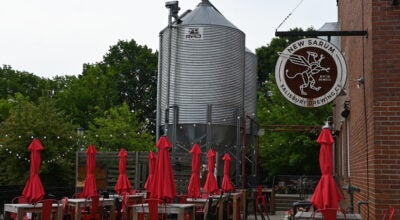Review: Salisbury Symphony concert shines with classic Gershwin
Published 12:00 am Thursday, May 18, 2017
By Dr. W. Gerald Cochran
Special to the Salisbury Post
Had George Gershwin (1898-1937) lived 30 more years, American classical music would most likely be quite different than it is today. In his brief 38 years, he had an astounding influence on American music — jazz, pop and classical.
The Salisbury Symphony Orchestra let us in on a little of that music in an all-Gershwin concert presented Saturday at Varick Auditorium on the campus of Livingstone College.
Maestro David Hagy opened the concert with two sets of medleys of Gershwin’s songs — the overture to “Crazy for You,” a romantic musical comedy written with his brother Ira, and a medley of songs arranged by composer and conductor Carmen Dragon. This was just a small sampling of the prodigious output of songs by the Gershwins, and all were performed exquisitely by the orchestra.
“Three Preludes for Piano” is a set of short classical works for piano as influenced by jazz. The orchestra played an arrangement orchestrated by Jose Serebrier.
In 1932, Gershwin took a vacation to Cuba, and on his return home wrote the “Cuban Overture.” It is dominated by Caribbean rhythms and Cuban native percussion with a wide spectrum of instrumental color and technique, expertly played by the Salisbury Symphony and its percussion section.
The first half of the concert, while quite good, was a prelude to the second half, opened by a spectacular performance of several songs from the opera “Porgy and Bess,” featuring soprano Teresa Moore-Mitchell and baritone Leonard Rowe.
Moore-Mitchell is, of course, well known to Salisbury audiences. She is currently professor of voice at Livingstone College and an adjunct vocal instructor at Catawba College.
Rowe has had an extensive opera career, and this season he is performing the title role in the 75th anniversary national tour of “Porgy and Bess.” He sang “I Got Plenty o’ Nuttin.” Moore-Mitchell sang “My Man’s Gone Now,” and then they sang the duet “Bess, You Is My Woman Now.”
They brought the house down.
But wait — we’re not done yet. The program concluded with the “Concerto in F,” which is closer in form to a traditional concerto than the earlier jazz-influenced “Rhapsody in Blue.” The concerto shows considerable development in Gershwin’s compositional technique, including the fact that he orchestrated the work himself, unlike “Rhapsody in Blue.”
The soloist was Nate Beversluis, a New York City-based conductor, composer and pianist. He is also music director of the Greensboro Symphony Youth Orchestra. This concerto not only requires the usual virtuosity of a concert pianist but also adeptness in jazz piano, which Beversluis superbly demonstrated in his performance.
With this work, George Gershwin accomplished the task of incorporating jazz into classical music circles, and this performance by Beversluis and the Salisbury Symphony Orchestra demonstrated that it is properly part of American classical music culture.
Dr. W. Gerald Cochrane lives in Salisbury.


